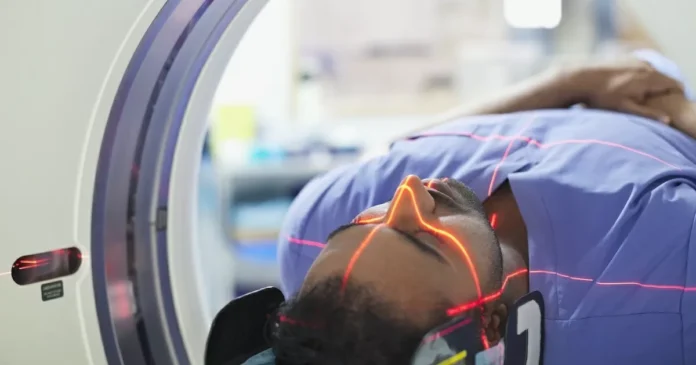Collaboration is the key to success in any field, and the medical industry is no exception. In a recent development, two leading companies have joined hands to advance the use of artificial intelligence (AI) in medical imaging. Siemens Healthineers, a global leader in medical technology, and Arterys, a pioneer in AI-powered medical imaging, have announced a collaboration that aims to revolutionize the way MRI scans are conducted.
The collaboration will focus on advancing AI-powered image reconstruction and embedding real-time clinical decision support into portable MRI workflow. This is a significant step towards making MRI scans more efficient, accurate, and accessible. With the help of AI, the companies aim to improve the overall patient experience and provide healthcare professionals with valuable insights to make informed decisions.
The use of AI in medical imaging is not new, but its potential is yet to be fully explored. By combining Siemens Healthineers’ expertise in medical technology and Arterys’ cutting-edge AI technology, the collaboration aims to take medical imaging to the next level. The goal is to develop a portable MRI system that can produce high-quality images in real-time, making it easier for healthcare professionals to diagnose and treat patients.
One of the key areas of focus for this collaboration is image reconstruction. Currently, MRI scans take a considerable amount of time to produce high-quality images. With the use of AI, the process can be significantly accelerated, reducing the scan time and improving the overall efficiency of the procedure. This will not only benefit patients by reducing their time in the MRI machine but also increase the number of scans that can be conducted in a day, ultimately reducing waiting times for patients.
Moreover, the collaboration also aims to embed real-time clinical decision support into the MRI workflow. This means that the AI technology will provide healthcare professionals with real-time insights and recommendations based on the MRI images. This will not only help in making accurate and timely diagnoses but also assist in identifying potential health issues that may have gone unnoticed otherwise. With the help of AI, healthcare professionals will be able to make more informed decisions, leading to better patient outcomes.
The use of AI in medical imaging has the potential to transform the healthcare industry. It can help in early detection of diseases, accurate diagnosis, and personalized treatment plans. With the collaboration between Siemens Healthineers and Arterys, this potential can be realized, and patients can benefit from the latest advancements in medical technology.
The portable MRI system developed through this collaboration will also have a significant impact on healthcare in remote and underserved areas. Currently, access to MRI scans is limited in these areas, and patients have to travel long distances to get the necessary medical care. With the development of a portable MRI system, healthcare professionals will be able to conduct scans in these areas, making medical care more accessible and affordable for patients.
The collaboration between Siemens Healthineers and Arterys is a testament to the power of partnerships in driving innovation in the medical industry. By combining their strengths, the two companies aim to bring about a positive change in the way MRI scans are conducted. The use of AI in medical imaging is still in its early stages, but with collaborations like this, its potential can be fully realized, and it can become an integral part of medical practice.
In conclusion, the collaboration between Siemens Healthineers and Arterys is a significant step towards advancing the use of AI in medical imaging. The development of a portable MRI system with AI-powered image reconstruction and real-time clinical decision support has the potential to revolutionize the way MRI scans are conducted. This collaboration is a prime example of how partnerships can drive innovation and bring about positive changes in the healthcare industry. With the use of AI, patients can expect more efficient, accurate, and accessible medical imaging, leading to better healthcare outcomes.

